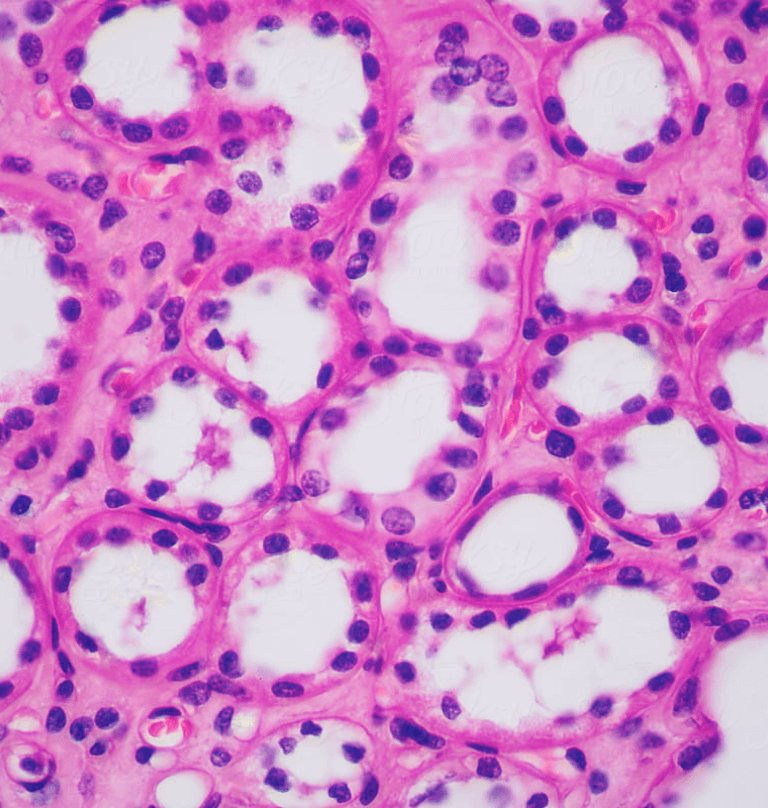What's New
How Genetic Testing Can Help Identify the Right Antidepressant for You

How Genetic Testing Can Help Identify the Right Antidepressant for You
How Does Genetic Testing Benefit People with Depression?
More than 5 million people in Canada meet the criteria for a major mental health condition. Depression is one of the country’s most prevalent mental health disorders, with 14% of Canadians 15 years and older experiencing a major depressive episode in their lifetime, and 7.6% in the past 12 months [1].
Depression treatment can feel like an uphill battle. Genetic differences can affect how well medications like antidepressants work for individuals, as well as influence what side effects they might cause.
Thankfully, genetic testing for antidepressants is providing new hope for depression treatment by identifying genetic factors that may affect how individuals respond to medication. With the science of pharmacogenetics (PGx), the process of trial-and-error is reduced, and more effective, personalized treatment is possible, with 85% higher odds of remission compared to traditional approaches [2].
Genetic Testing for Antidepressants and Personalized Treatment
A PGx test analyzes key genes known to impact response to many antidepressants, which helps to guide the selection of a mental health medication, and oftentimes the dosage. This information reduces uncertainties when approaching treatment options.
There are many advantages of genetic testing for depression — one of which is its potential to reduce the likelihood of side effects. The side effects linked to antidepressants present their own challenges, and include emotional numbness, drowsiness, sexual difficulties, and weight gain [3].
Guiding treatment with personalized genetic insights can reduce the risk of side effects by 30% [4]. When an antidepressant that is likely to have fewer side effects and be more effective overall is prescribed, individuals have a higher chance of experiencing meaningful relief from the difficult symptoms associated with depression.
How Results Can Help With Antidepressant Medication Selection
PGx test results contain valuable insights into how a person metabolizes different antidepressants. These insights help healthcare providers choose medications and dosages better suited to the individual, helping to avoid ineffective treatments and reduce adverse reactions.
With Inagene’s Pain & Mental Health test, you’ll receive recommendations for over 120 medications, including SSRIs, venlafaxine, vortioxetine, quetiapine, and aripiprazole. Your results are clearly laid out, with included medications separated into three main categories: Consider Alternatives; Consider Modified Approach; Use Standard Precautions.
The powerful potential of genetic testing for medication is evident in the stats — 76% of those who took an Inagene PGx test made a change to their treatment plan as a result of the insights provided (unpublished data, Inagene Diagnostics, Toronto, 2020).
How Genetic Testing at Home Works
A simple 5-minute home cheek swab test will give you information that you and your healthcare provider can use to make better informed decisions about depression treatment.
After purchasing a PGx test from Inagene, you’ll receive our at-home testing kit with all the supplies you need to swab your cheek and collect a sample. Once collected, you’ll mail the sample to our lab with the package provided.
When your results are ready, you’ll be able to view and download your Personalized Insights report. These results can then be securely sent to your healthcare provider in order to discuss a treatment plan that could be better aligned with your genetic makeup.
Are There Any Risks Involved With Pharmacogenetic Testing?
The aim of pharmacogenetic testing is to optimize the safety and effectiveness of medication. That said, there are a few risk factors to consider.
Privacy concerns can discourage people from taking a PGx test, as the information collected is highly personal. At Inagene, we believe that personalized medicine should never mean an invasion of privacy. We never share or sell data to third parties, and protect your personal data through a number of secure measures.
All testing and reporting are conducted in-house, with data securely stored in Canada to ensure customer privacy and compliance with stringent security standards. All DNA samples are safely destroyed after analysis is complete (unless a customer provides consent to maintain along with purchase of an Inagene Advantage membership).
Insurance companies cannot access your data from us, and genetic non-discrimination laws in both Canada and the U.S. make it illegal for insurers to request or use this information against you. Our test focuses on how you respond to medications rather than disease risks, and your test results are your information alone to use.
Another area of concern is testing accuracy. Inagene offers one of the most comprehensive commercial pharmacogenetic tests available, identifying rare and population-specific variants to minimize ethnic bias and reduce the risk of misclassifying individuals with abnormal gene function as normal.
With over 20 years of combined experience in genomic medicine, our laboratory team operates in a CLIA- and COLA-accredited facility and participates in biannual proficiency testing with the College of American Pathologists (CAP). Inagene also holds a Medical Device Establishment Licence from Health Canada.
It’s important to note that not all medications have known or established genetic interactions. At Inagene, we only include medications supported by reputable sources. If a medication isn't on our list, it's often because there lacks sufficient scientific evidence to establish genetic factors influencing an individual's response to that medication.
The last factor to be aware of is that PGx tests do not assess drug interactions associated with your current, or a future medication regimen. If you take more than one medication, it's important to discuss this with your pharmacist to determine if the medications are safe to take together, or if another medication should be considered instead.
Genetic testing for antidepressants can personalize your mental health treatment and help reduce the physical discomfort and mental hurdles that often come with trial-and-error prescribing. If you or a loved one is struggling with depression, consider the potential treatment benefits of taking a PGx test.
Disclaimer: This website has been developed by Inagene Diagnostics Inc for information purposes only. It does not provide medical advice, diagnosis, treatment or care. If you have a health problem, medical emergency, or a general health question, you should contact a physician or other qualified health care provider for consultation, diagnosis and/or treatment. Under no circumstances should you attempt self-diagnosis or treatment based on anything you have seen or read on this website. For more information about how to use this site, please see our Terms of Service.
References
